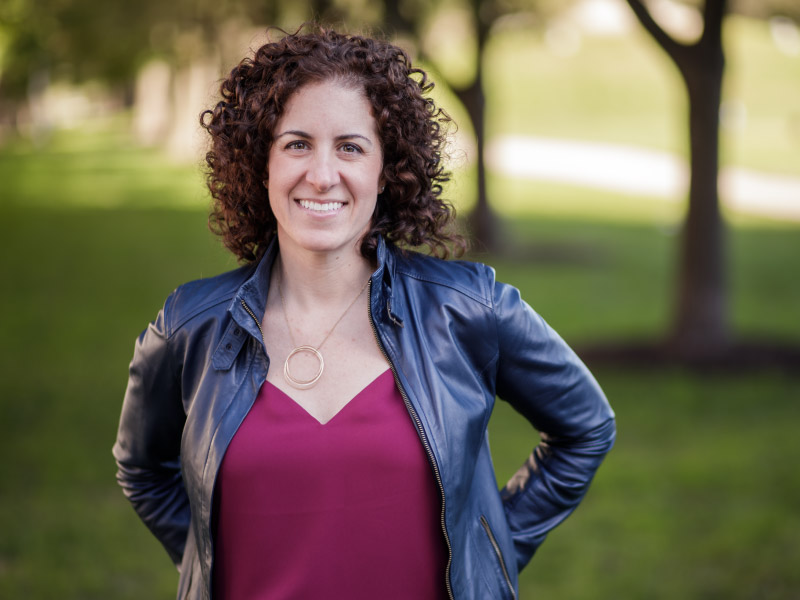For New York woman, what seemed like a migraine turned out to be much more

Leah Neaderthal was emptying the used coffee grounds from a stovetop moka pot when her vision suddenly became splotchy.
"I felt a little like I was out-of-body," she said. Looking over at Emily, who would later become her wife, Leah saw her face fall.
"I tried to say something, but it wouldn't come out. (My voice) was just garbled," Leah said.
The strange symptoms at first seemed to dissipate after Emily led her to the couch. When they began again, Emily took her to their bedroom and propped up her up against the headboard.
"My whole left side went numb," Leah said. "My face drooped. I couldn't move my tongue or say anything."
Luckily, Emily recognized that Leah was experiencing common signs of a stroke, easily remembered by the acronym F.A.S.T., a reminder that if your face droops, you have arm weakness or speech difficulty, it's time to call 911.
By the time paramedics arrived, her symptoms had again gone away, but she was transported to the hospital. Testing at the hospital near their home in Washington, D.C., showed she'd had two small strokes, but doctors couldn't identify what had caused them (meaning they were "cryptogenic").
Leah maintained a healthy lifestyle, had completed two triathlons the previous year, didn't have common risk factors such as high blood pressure or diabetes, and didn't smoke.
"We walked out of the hospital without any answers," she said. "Our biggest fear was, 'Is it going to happen again, and is the next one going to be the big one?'"
On average, someone has a stroke every 40 seconds in the United States. It's the No. 5 cause of death and a leading cause of long-term disability.
For the next month or two Leah, a business coach, struggled to find the right words and to read and grappled with the uncertainty of whether it was a temporary issue or a reality for the rest of her life.
"That was the most terrifying," she said.
Leah tried to learn what caused her stroke. She eventually found a specialist at Johns Hopkins University in Baltimore, who told her she had a migrainous stroke, a rare condition in which the arteries constrict, temporarily blocking blood flow.
Also called migrainous infarctions, what Leah experienced was a rare complication of a migraine, representing an estimated 0.02-0.05% of ischemic strokes.
She had experienced migraines with aura, causing her to temporarily lose vision, since childhood, a condition that can increase ischemic stroke risk.
Leah, now 40, takes medication to help prevent migraines and has changed her lifestyle to help reduce stress.
Sharing her experience with others also opened her eyes to the risk of stroke at any age.
"It seems that everyone knows someone who had a stroke at a young age," she said. "It's rare, but not as rare as we're led to believe. So it's important for young people to know the causes and the signs, because it's not just something that happens to other, older people."
Leah runs her own business these days in Brooklyn, New York, focused on coaching female entrepreneurs. She and Emily got married in December 2016 and welcomed a son in August 2019.
She said her experience is a constant reminder to take care of body and brain.
"For me, 'life is precious' isn't just a concept; it's something I've seen firsthand," she said.




